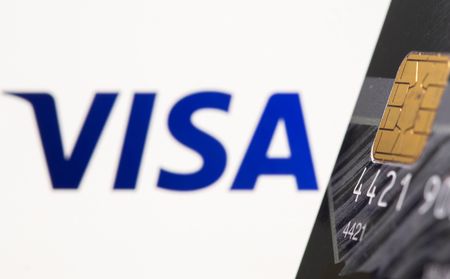By Vladyslav Smilianets and Thomas Peter
ZHOVTI VODY, Ukraine (Reuters) – As Kyiv and Washington work on a deal that will give the U.S. a share of Ukraine’s mineral wealth, Ukrainians who live with seams of iron beneath their feet have a message for Donald Trump: don’t take advantage of us, these resources are ours.
The U.S. president has put pressure on Kyiv by threatening to stop the flow of military supplies to help it fight Russia’s invasion unless the U.S. gets some payback for the billions of dollars the aid is costing.
But the deal is sensitive for Ukraine, which has a proud history of mining coal and iron ore and hopes to exploit seams of increasingly sought-after rare earths. Mineral revenues are a crucial pillar of the state budget.
In the city of Kryvyi Rih, on whose outskirts open-cast iron ore mines have gouged huge craters in the landscape, 71-year-old pensioner Oleksandr had little time for Trump: “You can’t trust that ginger guy, he’s not that kind of person.”
“From what I can see, they only want to take, not to give,” he said as he shopped near the UGOK iron ore mining and processing plant.
President Volodymyr Zelenskiy, himself from Kryvyi Rih, said on Monday the negotiations on creating a mineral revenue fund from which the U.S. would draw had made progress since a memorandum of intent signed on April 18:
“The document has become much stronger – more equitable – and could be beneficial to both our peoples, for Ukraine and for America.”
‘MINERALS BELONG TO THE PEOPLE’
Zelenskiy knows he must win Trump over after a difficult relationship so far, but that there will be uproar at home if he makes a bad deal.
About 60 km (40 miles) north of Kryvyi Rih is the town of Zhovti Vody – or “yellow waters” – where uranium and iron ore were mined for decades.
“I hope that the people who are involved in this think about Ukraine and its people, because our mineral riches belong to the people,” said 71-year-old resident Nina Fesenko.
Olga Marynska, 68, said she hoped the government would prevent Ukraine being exploited.
“We don’t have to give them everything,” she said. “I don’t think we have to do it in such a way that they take everything out of that fund.”
Prime Minister Denys Shmyhal said on Sunday that there was now agreement that the deal would not seek to pay for U.S. aid provided to Kyiv in the past.
That may help to reassure Ukrainians who feel they have battled Russia since 2022 not only for themselves but also on behalf of the West: the U.S.-led NATO defence alliance that they seek to join, and the European nations to which many Ukrainians feel much closer than to President Vladimir Putin’s Russia.
“I do think that for us as Ukrainians, it feels a little bit like another country is using our vulnerability, which was not created by us,” said Ukrainian legislator Inna Sovsun.
She said it was “critically important when we are designing the future to keep in mind that people will live here in the future”.
(Additional reporting by Anastasiia Malenko; Writing by Christian Lowe; Editing by Kevin Liffey)











